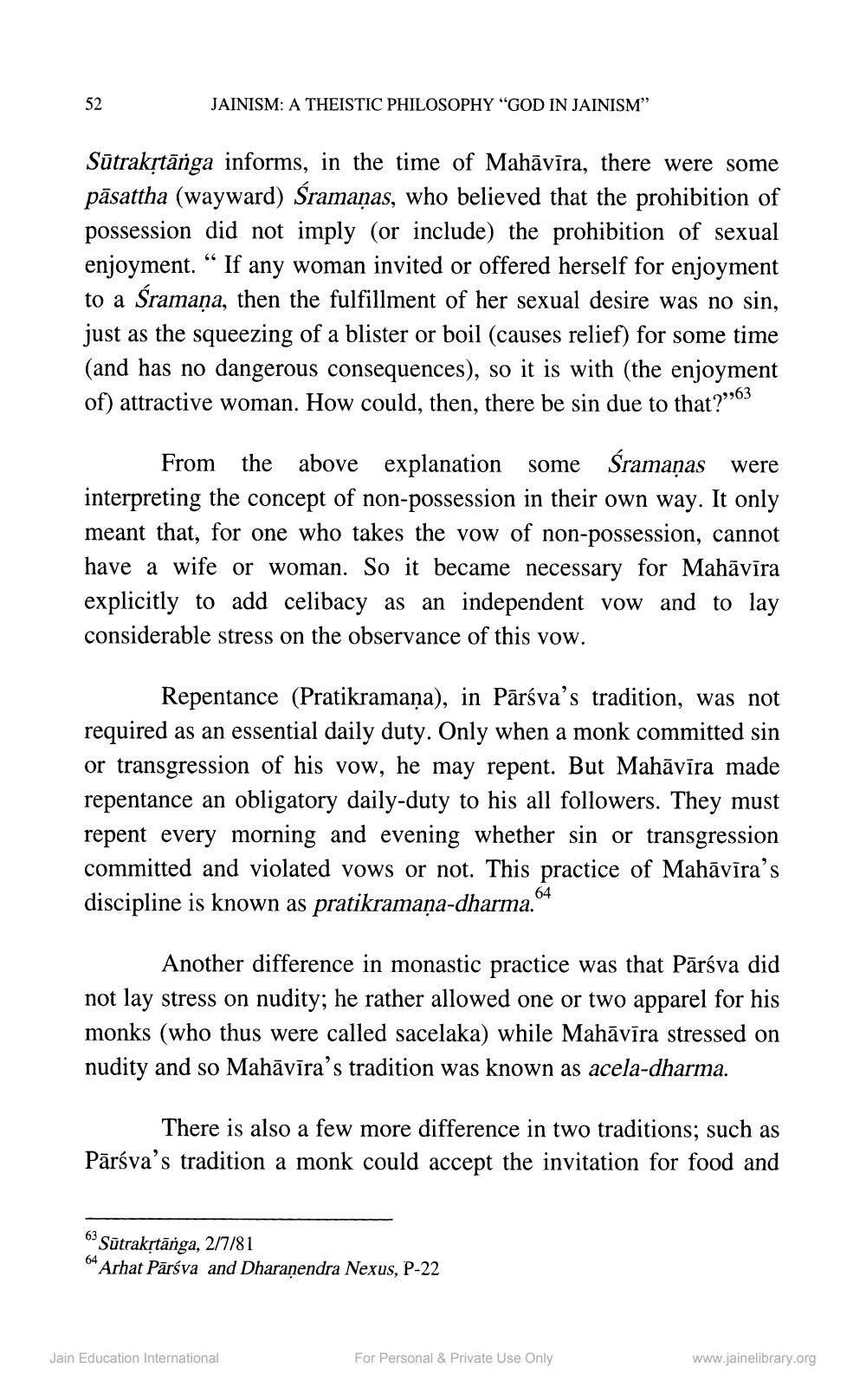________________
52
JAINISM: A THEISTIC PHILOSOPHY "GOD IN JAINISM"
Sūtrakṛtānga informs, in the time of Mahāvīra, there were some pāsattha (wayward) Śramaṇas, who believed that the prohibition of possession did not imply (or include) the prohibition of sexual enjoyment." If any woman invited or offered herself for enjoyment to a Śramana, then the fulfillment of her sexual desire was no sin, just as the squeezing of a blister or boil (causes relief) for some time (and has no dangerous consequences), so it is with (the enjoyment of) attractive woman. How could, then, there be sin due to that?"63
From the above explanation some Śramaņas were interpreting the concept of non-possession in their own way. It only meant that, for one who takes the vow of non-possession, cannot have a wife or woman. So it became necessary for Mahāvīra explicitly to add celibacy as an independent vow and to lay considerable stress on the observance of this vow.
Repentance (Pratikramaṇa), in Pārsva's tradition, was not required as an essential daily duty. Only when a monk committed sin or transgression of his vow, he may repent. But Mahāvīra made repentance an obligatory daily-duty to his all followers. They must repent every morning and evening whether sin or transgression committed and violated vows or not. This practice of Mahāvīra's discipline is known as pratikramaṇa-dharma.
Another difference in monastic practice was that Pārsva did not lay stress on nudity; he rather allowed one or two apparel for his monks (who thus were called sacelaka) while Mahāvīra stressed on nudity and so Mahāvīra's tradition was known as acela-dharma.
64
There is also a few more difference in two traditions; such as Pārsva's tradition a monk could accept the invitation for food and
63 Sūtrakṛtānga, 2/7/81
64
"Arhat Parsva and Dharanendra Nexus, P-22
Jain Education International
For Personal & Private Use Only
www.jainelibrary.org




